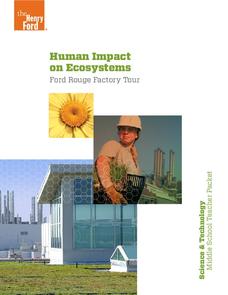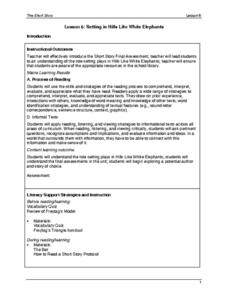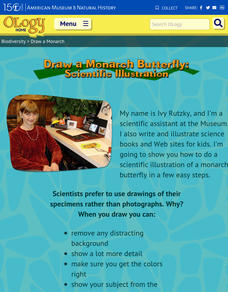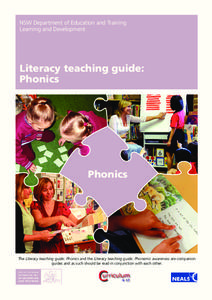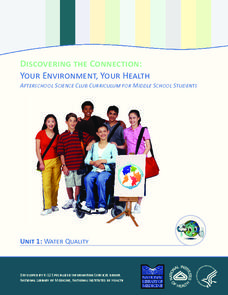Syracuse University
Women's Suffrage Movement
Women gained the right to vote in the twentieth century, but the fight for equality dates back centuries. Using an invitation to an 1874 suffrage convention, eager historians consider the motivations behind supporters of the suffrage...
Scholastic
Study Jams! The Universe
Take your kids on a trip through the universe as they explore galaxies, solar systems, stars, and more. Watch the short video, then have learners show their knowledge with the included quiz. Supplement the video by having teams build a...
Henry Ford Museum
Human Impact on Ecosystems
An environmenta science unit includes three lessons plus a cumulative project covering the ecosystem. Scholars follow the history of the Ford Rouge Factory from its construction on wetlands and how it destroyed the environment to its...
Facing History and Ourselves
Civil Rights Historical Investigations
The murder of Emmett Till, the Selma to Montgomery march, and the desegregation of Boston schools are the focus of three units that ask class members to investigate why these events were so key in the struggle for civil rights. Groups...
Maine Content Literacy Project
Setting in "Hills Like White Elephants"
Continue your study of the short story with the next lesson in this fourteen-lesson series. After wrapping up a study of "Hills Like White Elephants" through a quiz and discussion of the setting, learners are introduced to the final...
Learning to Give
Humphrey The Lost Whale
The children's book Humphrey the Lost Whale tells an amazing tale of a community joining together for a common cause. Read this book with your class, making connections between the events in the story and personal experiences of young...
American Museum of Natural History
Draw a Monarch Butterfly: Scientific Illustrations
One doesn't have to be an artist to appreciate nature. A thorough resource shows pupils how to create detailed illustrations of a monarch butterfly. The lesson highlights the benefits of creating scientific drawings as opposed to simply...
Henry Ford Museum
You Can Be an Innovator ... Like Henry Ford
Why did Henry Ford want to invent a car for the masses? Why did Henry Ford locate his factory in Detroit? Why did Henry Ford encourage the idea of a 5-day work week? Young innovators find the answers to these and other question in a unit...
Library of Congress
Women's Suffrage Movement Across America
An engaging resource provides many primary source materials to inform a study of the Women's Suffrage Movement. Suggestions include building a timeline of the fight, using the documents as the basis of a DBQ, and/or using a Venn diagram...
Facing History and Ourselves
Protesting Discrimination in Bristol
Using the Bristol Bus Boycott as a case study, class members examine the strategies and levels of power protesters used to effect change. The two-day instructional activity concludes with individuals reflecting on the actions they might...
Facing History and Ourselves
Defining Democracy
For democracies, it is both the best and the worst of times. As part of a study of the challenges facing democracies, young political scientists seek first to define democracy, and then to consider the relationship between democracy and...
Facing History and Ourselves
Many Voices, One National Identity
To conclude the unit on "Exploring Identity in the United States," pupils consider whether it is possible to combine many voices into one national identity. After creating an identity chart that lists words, phrases, and images that they...
National Library of Medicine
Your Environment, Your Health: Air Quality
Some scientists argue that air pollution now causes more deaths than smoking. The second unit in a six-part series focuses on air quality. Scholars learn what's in the air, how clean the air around their school is, and what they can do...
Vanderbilt University
Literacy Teaching Guide: Phonics
You don't have to be a teacher in New South Wales to appreciate this phonics teaching guide. The 73-page packet is packed with information about the principles of effective phonics programs, teaching methods, sequencing, key strategies,...
PBS
Making Change: Revolutionary Tactics of the Civil Rights Movement
The film American Revolutionary: The Evolution of Grace Lee Boggs introduces viewers to the differing philosophies of and strategies employed by 1960s civil rights leaders such as Malcolm X and Martin Luther King, Jr. and the debate over...
Children's Museum of Indianapolis
Anne Frank: Facing Hatred, Daring to Dream
The stories of Anne Frank, Ruby Bridges, and Ryan White illustrate the power of children to make a difference. The three lesson in this must-have resource are designed to inspire young people to make a difference in their world....
National Library of Medicine
Your Environment, Your Health: Water Quality
How important is water quality where you live? The first module in a six-unit series includes four lessons on water quality. By applying the concept directly to the lives of pupils, they engage in meaningful learning. They read about...
National Library of Medicine
Your Environment, Your Health: Chemicals in Your Home
Many people know about chemical pollution, but are all chemicals bad? The third unit in a series of six addresses chemicals common in everyday life. Scholars learn about the chemicals found in their own homes, chemical safety, and...
ThoughtCo
Mardi Gras Vocabulary
Words associated with the celebration of Mardi Gras are featured in a short vocabulary learning exercise that asks pupils to match the word with it's definition. "Laissez les bons temps rouler!"
Library of Congress
Investigating the Building Blocks of Our Community’s Past, Present, and Future
As Ken Jennings said, "There's just something hypnotic about maps." Certainly, the longer you look at them the more you can learn. In this project-based learning lesson, individuals study both historic and present-day maps of their area...
California Polytechnic State University
Australian Geography Unit
At the heart of this resource is a beautifully detailed PowerPoint presentation (provided in PDF form) on the overall physical geography of Australia, basic facts about the country, Aboriginal history, and Australia culture and lifestyle.
Texas Commission on Environmental Quality
Environmental Sciences
Whether you are teaching environmental science in junior high or studying recycling in kindergarten, there is something for all in this set of lessons designed for environmental education. The 110-page packet comes with tips for teaching...
J. Paul Getty Trust
Picturing a Story: Photo Essay about a Community, Event or Issue
Picture this. Class members follow in the footsteps of W. Eugene Smith, Dorothea Lange, James Nachtwey, and Lewis Hine by creating their own photo essay about a local event or issue.
Chicago Botanic Garden
Greenhouse Gas Emissions — Natural and Human Causes
What impact do humans have on greenhouse gas emissions? What are the natural causes of these gasses? Thanks to the carbon cycle, carbon dioxide eats away at the earth's atmosphere with the intensified help of humans. Young scientists...
Other popular searches
- Library Research
- Library Research Study Skills
- Library Research Skills
- Library Research Projects
- Library Research Resources
- Library Research Instruction
- Monsters Library Research
- Paranormal Library Research
- Writing and Library Research
- Library Research Lesson Plan
- Math Library Research
- Library Research Worksheet




